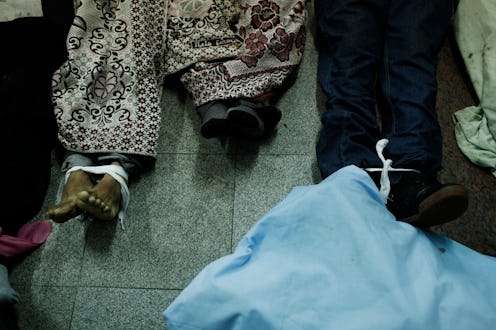News
Bloodshed in Egypt Leaves Hundreds Dead
On Wednesday, an estimated 235 people were killed across Egypt after state security forces charged into sit-in protests, aiming to scatter its participants. The ensuing clashes wounded at least 1,000.
Egypt's interim president declared a state of emergency Wednesday, as the country's vice president resigned in protest of the violence. Most shops had closed their doors by lunchtime.
The sit-in protesters, who had been there for a month, were demanding the re-instatement of ex-President Mohamed Morsi when the state's military began trying to clear them out. The country's Interior Minister told press that Morsi's supporters attacked police stations, churches, and the Finance Ministry, allegedly killing 43 policemen.
By the time evening fell, all of the protesters had left the site of the sit-in, and at least one of the areas had been cordoned off. Sky News in the U.K. confirmed that one of the dead was a cameraman covering the protests.
Vice President Mohammed El Baradei resigned, stating that he could not "bear the responsibility for one drop of blood."
Morsi's supporters have refused to participate in the setting up of new elections, though the interim government has been attempting to do just that.
The U.S. has so far not taken a clear stance on the crisis, and has deliberated whether or not the crisis counts as a "coup." (If it were to be, $1.5 billion-worth of aid to Egypt from the U.S. would be halted.)
Obama has been criticized for not taking a stronger role in the crisis, but, according to USA Today, analysts say that foreign intervention isn't necessary: what's needed is for interim government to take measures that would be popular amongst a cross-population of Egyptians.
